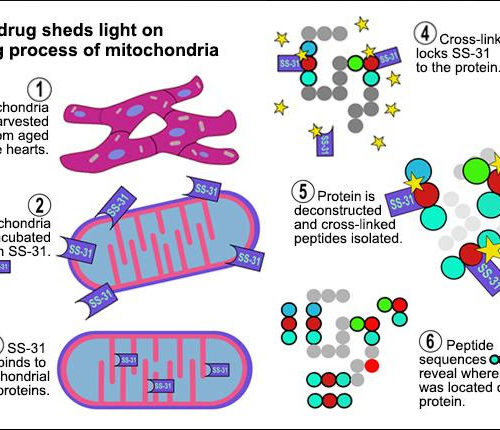An experimental drug that has been shown to improve the function of diseased and aged mitochondria binds to 12 key proteins involved in energy production, researchers at the University of Washington School of Medicine have found. The drug, elamipretide, also called SS-31, has shown promise for treating rare inherited diseases that affect the mitochondria, the...
Tag: <span>chronic disease</span>
Poor fitness and obesity in adolescence linked to later chronic disease
Adolescents who have poor cardiorespiratory fitness or are obese have an increased risk of developing cardiovascular disease later in life, serious enough to qualify them for disability pension due to a chronically reduced work capacity. The findings also suggest that a small improvement in fitness is associated with a lower risk. “In the study, we...
For ME/CFS patients, viral immunities come at a devastating, lifelong cost
by University of California – San Diego Mylagic encephalomyelitis/chronic fatigue syndrome (ME/CFS) is a disabling and complex illness. Affected persons often cannot pursue ordinary activities—physical or mental—because of an incapacitating loss of energy and other symptoms, and may find themselves confined to bed or house-bound for years. Anyone can develop ME/CFS, though it most commonly...
Remote-controlled drug delivery implant size of grape may help chronic disease management
Nanofluidic device delivered controlled doses HOUSTON METHODIST People with chronic diseases like arthritis, diabetes and heart disease may one day forego the daily regimen of pills and, instead, receive a scheduled dosage of medication through a grape-sized implant that is remotely controlled. Researchers from Houston Methodist successfully delivered continuous, predetermined dosages of two chronic disease medications using...
Even minor distress puts you at risk of chronic disease
Dealing with anxiety, depression, and stress at intense levels for a long time can impact our long-term physical health. But what if we are exposed to low levels of psychological distress? Does it still jeopardize our well-being? According to a new study, the answer is “yes.” ‘Even low levels of distress’ harm our well-being in...
Routine blood tests can help measure a patient’s future risk for chronic disease, new study finds
A new study by researchers at the Intermountain Medical Center Heart Institute in Salt Lake City finds that combining information from routine blood tests and age of primary care patients can create a score that measures future risk of chronic disease. This simple risk score, termed the Intermountain Chronic Disease Risk Score, or ICHRON, can...
- 1
- 2



